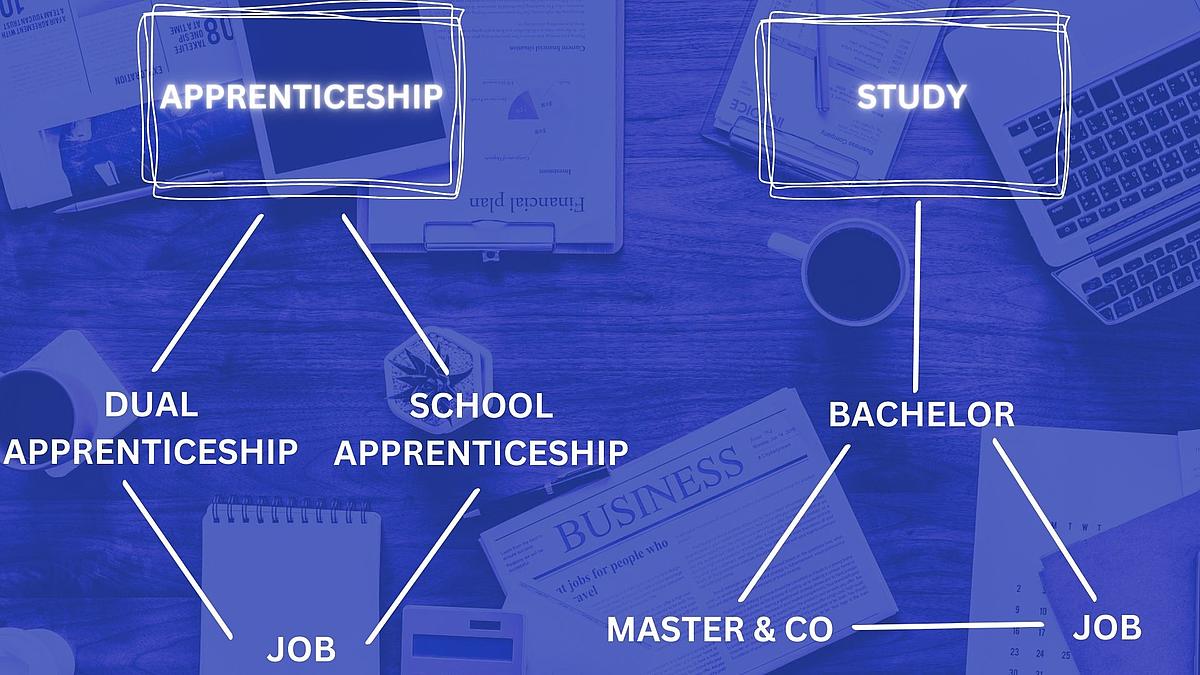For the completely undecided or those who would like to study and do an apprenticeship, there is always the option of a dual study program.
The dual study program combines both types of training and also leads to two degrees. As with an apprenticeship, you usually have to apply to a company and receive a salary from it. In the meantime, however, you also study a suitable subject, the tuition fees for which are paid by the company. By doing both at the same time, you shorten the training time that you would have if you did both one after the other. In addition, you have a good chance of being taken on by the company.
However, a dual study program can also tend to be adapted to the individual requirements of the company and leave little freedom for individual focus as a normal study program can offer.
In summary, it can be said that a dual study program combines many advantages of both sides, but can not get rid of all the disadvantages. Here, too, you first have to think carefully about whether this form suits you.

















